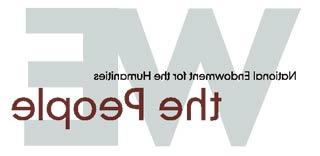印花税法案
介绍
George Grenville knows that the Sugar Act won't generate enough revenue in the colonies, and so he instructs his secretary in the Treasury, 托马斯·惠, to draft legislation for a new tax. This duty will require that a wide range of legal and trade documents, as well as newspapers and even dice, 携带官方邮票. Whately makes inquiries about conditions in America, assuring his correspondents that he wants to devise a 一种不太沉重的税.
Whately's informants tell him that the proposed tax will be fiercely opposed. At the same time, and into February 1765, colonial agents meet with Grenville. 殖民者, 他们坚持认为, are loyal subjects; they are willing to raise a revenue in proper constitutional form, through their own legislatures. 但格伦维尔置若罔闻, Parliament refuses to entertain colonial petitions, and the Stamp Act easily passes in March. 邮票已经在路上了 横跨大西洋.
Toward the end of May, news of the act reaches the colonies. The Virginia House of Burgesses, 准备休庭, rushes through a set of resolutions protesting the tax. As newspapers throughout the colonies 转载《利记手机官网》, the resolutions grow ever more numerous and radical. Other colonies issue their own responses. Meanwhile, the Massachusetts legislature circulates 呼吁统一应对 to the economic and constitutional issues facing the colonies. 1765年10月中旬, twenty-seven delegates from nine colonies meet in New York City at what comes to be known as the Stamp Act Congress. 十月十九日, the congress adopts fourteen resolutions, which it promptly forwards to King and Parliament.
While elite legislators debate rights and craft petitions, working-class men find their own way to register their displeasure with the unwanted tax. In Boston, rival gangs conspire and turn their fury toward the appointed stamp master, Andrew Oliver. One night in mid-August 1765, Oliver watches from afar as his effigy swings and his house crumbles under the hands of an angry mob. He resigns his commission to distribute the stamps, and throughout the colonies other stamp masters—attacked, or afraid of being attacked—likewise surrender their lucrative positions.
波士顿的特殊 说服的艺术 translates readily to New York. There a mob also hangs effigies and destroys a home, actions that achieve their desired end: no stamps will be distributed; no tax will be paid. Whether refusing to render aid or fleeing in the aftermath of violence, two royal officers shirk the obligations of their posts to adopt a policy of 安全第一. Merchant James Murray also pursues his own interests. 相信 prosperity is the end and protectionism the means, he supports the status quo in British trade policy. Patriot lawyer John Adams, on the other hand, delights in the colonists' principled resistance. 尽管如此, 抵抗的代价亚当斯感受到了它的影响.
1765年11月1日以后, the date the Stamp Act is due to go into effect, and throughout the early months of 1766, 公共生活一片混乱. The stamps required to conduct business legally are locked away, and officials debate whether ports and courts should close or remain open. Colonists groan under the burden of the Stamp Act's restrictions and the fear of disobeying it. 在英格兰, 同情的商人, eager to reestablish a free flow of trade and to regain their former profits, lobby Parliament to rescind the tax on the colonies. After lengthy consideration, Parliament votes to revoke the tax, and when the 光荣的新闻 reaches the colonies, church bells ring.
The victory, sweet as it is, will be short lived.
罗的革命
“今天早上 ... the Stamp Officer hung in Effigy with a Libel on the Breast."



![Pamphlet, An Act for Granting and Applying Certain Stamp Duties [Stamp Act], (Boston, 1765)](/database/images/stamp_1_th.jpg)









